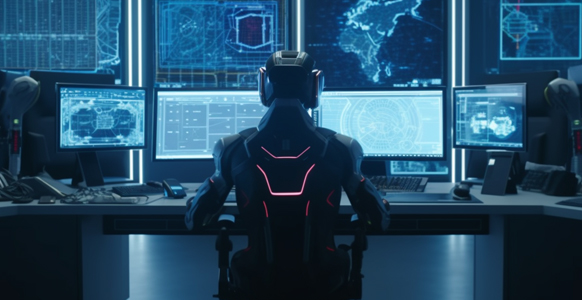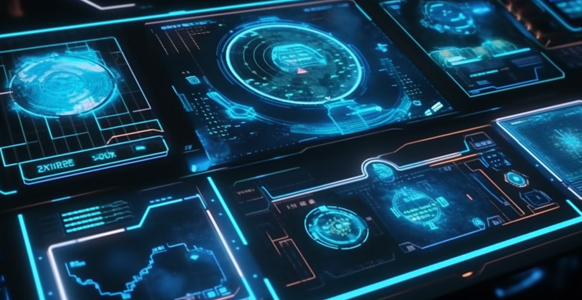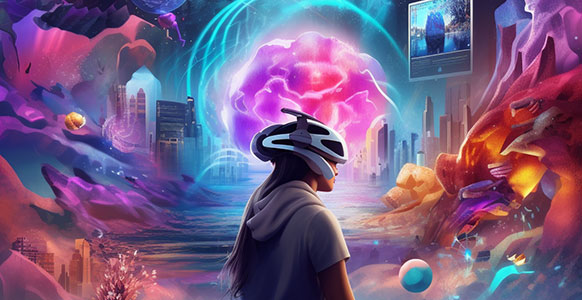Content
Author

In our previous article, we discussed GameFi and Metaverse. This time we will take a look at another cutting-edge tech – Artificial Intelligence (or AI) and how it can empower GameFi.
Introduction
Let’s start with the basics. What is GameFi? GameFi (also known as Game Finance) initially referred to decentralized finance (DeFi) protocols with gamification elements, however, the term evolved since then and now it describes the financial nature of blockchain-based games.
In a way, this is not a new phenomenon, users have been trading valuable in-game objects for decades, such as rare skins in Counter-Strike: Global Offensive that can cost up to tens of thousands of dollars or MMO accounts with powerful high-level characters. That being said the system was hard to access, prone to vulnerabilities and scams and sometimes outright banned by game developers. GameFi formalizes and gives the system structure, using blockchain.
So, what do we mean when we say AI in the context of gaming products? It means the use of modern AI Generation tools in the process of developing a game.

Enhancing Gameplay through AI
Let’s take a look at how you as a developer can enhance the gameplay with the use of AI.
The first use case is AI-based Game Design – Procedural AI generation can significantly simplify the process of designing your GameFi product. While some of the aspects of game design are better suited for human designers, artificial intelligence can be used to balance all in-game systems or to procedurally generate game levels. With AI it is possible to create large open-world environments or to eliminate the need for routine work by providing level designers with a complete level that they can then tweak and edit to their liking, dramatically decreasing the time spent on developing each level.
Secondly, AI can be used for better personalization of the game for each player. User data can be analyzed by AI algorithms to offer personalized GameFi experiences. This might include content or activity suggestions, personalized avatars, and virtual worlds catered to a user’s preferences.


Enhancing Immersion through AI
The rapid improvement of Visual AI Generation allows for infinite possibilities and use cases in game development, such as:
AI-generated Game Worlds – AI can create a completely unique and fully realized world for each user or each new playing session.
Realistic Game Characters – Modern AI tools allow developers to quickly and easily create realistic-looking in-game Characters which creates a lot of opportunities, from populating your in-game world with NPCs (Non-Player Characters) that all look unique, to allowing gamers to create an avatar that looks exactly like them.
Interactive Storytelling – Text-based AI allows developers to create entirely dynamic, unique and interactive stories, that organically react to the players’ inputs. The use cases range from giving NPCs the ability to dynamically respond to the player to generating entire storylines and quests.
Challenges and Limitations
While AI technology has gone very far in recent times and has many potential use cases in GameFi, it still has a lot of challenges and limitations to overcome.
Cost – smaller studios and independent developers may find it difficult to develop AI technology because of its high cost.
Complexity – adding AI to a game can be challenging and demanding, requiring specialized knowledge and skills. Because of this, it might be difficult for game developers who are unfamiliar with AI to incorporate it into their products.
Technical Limitations – AI is still constrained by its programming and the data it has been trained on, despite the fact that it is capable of being extremely sophisticated. As a result, AI might be unable to appropriately react to unanticipated events or player actions.
Lack of creativity – while AI is capable of producing content and designs, it may not be able to come up with truly innovative or creative solutions. Thus, its potential in the gaming sector is limited.
Ethical considerations – the use of AI in games may raise ethical issues for some people, such as the possibility that it will be employed unethically or to reinforce harmful biases.
Conclusion
In conclusion, AI has the potential to make GameFi more immersive and enjoyable for players and easier to make for developers. However, the tech is still very young and has a lot of limitations to overcome. That being said the future looks very bright for AI with many potential use cases ranging from making more adaptive NPCs and realistic worlds to dealing with cheaters, automating playtesting or creating more in-depth analytics.
Red Pill has extensive experience in creating blockchain-based GameFi projects and AI content generators. Contact us if your business needs a custom-made GameFi or Generative AI product: https://redpilldev.tech/contacts/.






 t.me/redpilldev
t.me/redpilldev